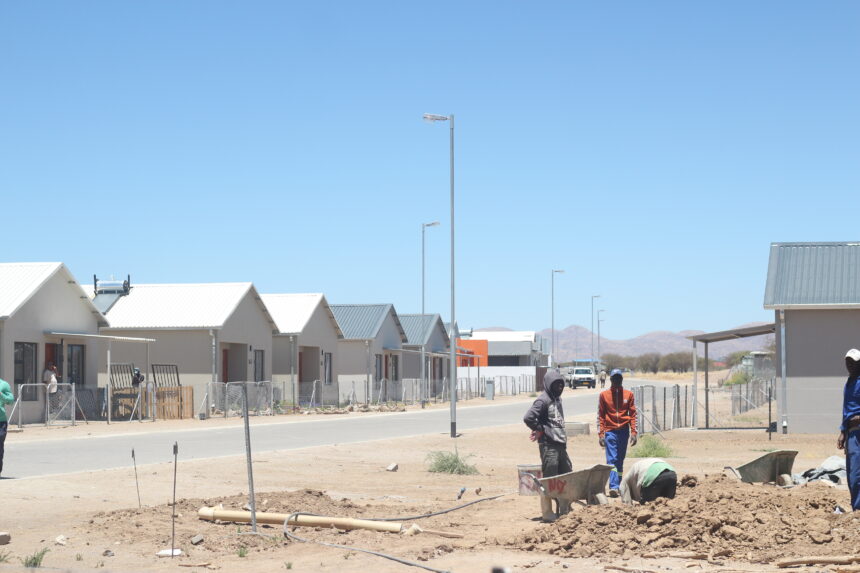Auleria Wakudumo
Urban and Rural Development minister Erastus Uutoni says there is a need for public-private partnerships to address the land and housing backlog in the country.
Uutoni made it clear that the government is not in a position and does not have resources to cater for the growing housing demand the country is experiencing.
“There is a greater role for the private sector and viable public-private partnerships to achieve specific targets as set out in the National Development Plan and the second Harambee Prosperity Plan. This, however, requires business unusual and innovative approaches and solutions,” said the
minister.
Uutoni made these remarks during the Old Mutual Namibia Housing Fund launch in Windhoek on Wednesday.
He said investors have a unique opportunity to partner the government to shape the future of towns.
He said the success of such initiatives
relies on strong collaboration between the public and private sector working together.
“We can leverage our combined expertise and resources to address one of the most pressing issues of our time, of building inclusive communities where everyone has a place to call home,” he said.
Uutoni noted that the ministry’s
approach to housing and human settlement development as articulated in the country’s housing policy, is premised on “firstly the partnership and collaboration between public, private and community actors and secondly, principles of quality and affordability, which recognise that houses must be built according to quality standards, as well as at prices that home-seekers can afford”.
The minister expressed gratitude to Old Mutual for partnering the government to tackle the nation’s housing shortage.
“As a ministry, we are proud to associate and are fortunate to have Old Mutual as part
of this transformative journey. Your
investment in affordable housing is not merely a financial decision, but, it is a commitment to fostering stronger, more equitable communities and a more robust economy. Together, we can make a lasting impact, and pave the way for a brighter future for all,” he said. The minister added that every individual has the right to live in a home that
provides safety and security. He, therefore, urged the public and the private sector as well as financial institutions to familiarise themselves with the contents of the country’s housing policy, and make contributions
to ensure that every Namibian is housed.
-wakudumoauleria@gmail.com


